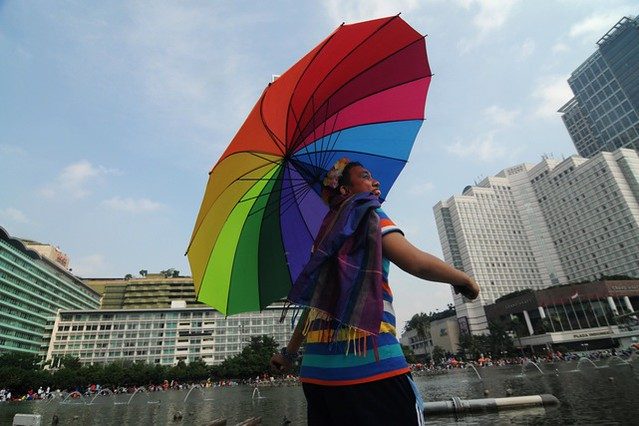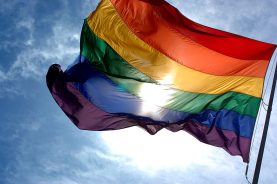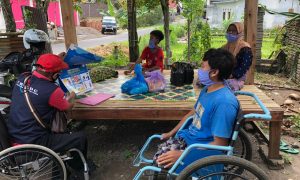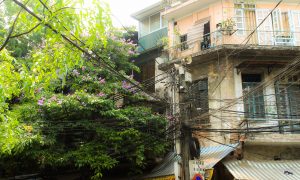On June 25th, the Pew Research Centre released a report titled ‘The Global Divide on Homosexuality Persists’. The survey that produced this report asked simply: “… which one of these comes closer to your opinion? Homosexuality should be accepted by society OR Homosexuality should not be accepted by society.” Unsurprisingly, the results varied widely across the thirty-four countries surveyed. Indonesia sits squarely at the bottom of this range, with a meagre 9 per cent of respondents believing Indonesian society should accept homosexuality. In stark contrast, the Philippines, the only other country in the region surveyed, reported an acceptance rate of 73 per cent.
However, In line with global trends over the past six years, Indonesia has seen a 13 per cent drop in the number of respondents who believe society should not accept homosexuality, from 93 to 80 per cent. This data presents a significant shift in public perceptions of the LGBTQ+ community in Indonesia. Despite the uncertainties faced by vulnerable populations during the COVID-19 pandemic, LGBTQ+ Indonesians have recently made great strides in community representation and leadership. Exploring such strides in contrast to the Pew survey results provides a holistic understanding of contemporary LGBTQ+ acceptance in Indonesia.
Despite limited acceptance of homosexuality, Indonesia has not criminalised LGBTQ+ identities and sexual practices at the national level. The Indonesian constitution definitively outlines the right of all Indonesians to be free from discriminatory treatment. However, over the last five years, LGBTQ+ Indonesians have faced ongoing discrimination through dismissal from employment, forced exorcisms, and attacks from angry mobs. Even in 2020, the Indonesian Psychiatrists Association classifies LGBTQ+ identities and behaviours as mental disorders that can be cured through ‘appropriate treatment’.
Hardships have remained commonplace for LGBTQ+ Indonesians during the pandemic. COVID-19 has singled out transgender women (often referred to as waria) by jeopardising the industries that provide regular income: salons, street performance, entertainment, and sex work in particular. In an attempt to ease financial instability, the Crisis Response Management (CRM) Coalition, led by civil society organisations and UNAIDS Indonesia, have raised funds and distributed food and hygiene packages to over 500 waria in Jakarta.
Yet the waria community are not simply recipients of pandemic assistance. Waria in Yogyakarta and on the island of Flores are engaged in alleviation programs, helping their communities by distributing masks, encouraging hand-washing, and even guarding village entry and exit points. In Bandung, the diversity collective Panggung Minoritas are working with the waria-led organisation Srikandi Pasundan to support over 150 transgender women across West Java. Panggung Minoritas have also recently launched a podcast to circulate monthly-meeting discussions. Such initiatives, often led by LGBTQ+ Indonesians, are driving some of the most effective community responses to the hardships of the pandemic.
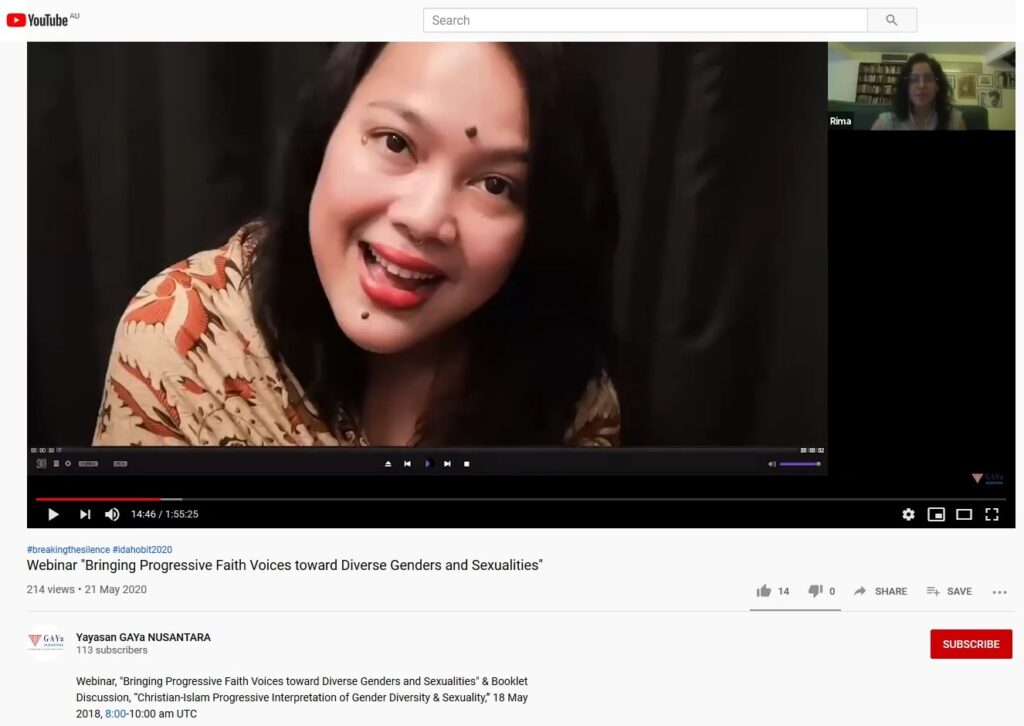
Unfortunately, low acceptance of the Indonesian LGBTQ+ community continues to endanger transgender lives. In April, a transgender woman named Mira was the victim of a horrific attack, accused of theft by a mob of men and burned alive in a North Jakarta bus station. Two suspects were later arrested and charged with aggravated assault, while three other suspects remain on the run.
But as the Pew Research Centre report indicates, attitudes may be shifting. This year has seen a number of Indonesian waria defy the odds and acquire influential public service positions. In the city of Ternate in North Maluku Province, Kety Haji Jalla has inspired many as a political activist and dedicated educator, while in a village in East Nusa Tenggara, Hendrika Mayora was elected Chairperson of the Village Consultative Body. Similar to the CRM Coalition, Hendrika has been collecting donations and distributing food to vulnerable groups most impacted by the economic fallout of COVID-19.
LGBTQ+ Indonesians have showed resilience in the face of hardship and proved capable of adapting to the needs of the community. Unable to hold in-person discussions, The Indonesian Journalists Union for Diversity created a digital space for community solidarity through a live webinar commemorating Pride Month. Sadly, hopes to disseminate important information were crushed when Youtube, responding to viewer complaints concerning the sensitivity of the content, removed the webinar mid-broadcast.
In a more successful move towards creating a digital community, the LGBTQ+ organisation GAYa Nusantara hosted a webinar in May on progressive religious perspectives to mark the International Day Against Homophobia, Biphobia, Interphobia, and Transphobia (IDAHOBIT). Engaging the community in insightful discussion, the webinar, held entirely in English, remains uploaded on Youtube. The move towards digital spaces shows that even in the midst of a crisis LGBTQ+ leaders in Indonesia remain focussed on providing accessible information to their communities.
The criminalisation of LGBT people in Indonesia
How sensationalism is driving the campaign against LGBT rights.
Courageous LGBTQ+ Indonesians have not only adapted to additional hardship but served as community leaders and assisted one another in precarious economic circumstances. Such resilience reveals a glimmer of hope in spite of discouraging results in the Pew Research Centre report. If societal acceptance of sexual and gender diversity increases, LGBTQ+ Indonesians may find a place as permanent community leaders, thus paving the way for future acceptance and representation nationwide.
 Facebook
Facebook  Twitter
Twitter  Soundcloud
Soundcloud  Youtube
Youtube  Rss
Rss 